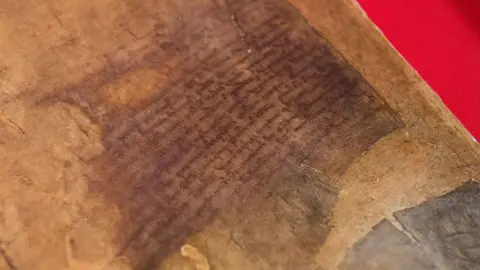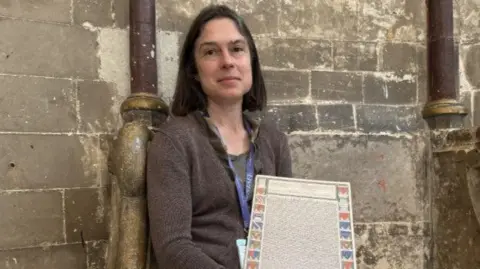'Definitive' Magna Carta marked at Canterbury talk
 Getty Images
Getty ImagesWhile the 800th anniversary of Magna Carta was marked 10 years ago, 2025 is also a significant date in the history of the landmark document.
In 1215 the first Magna Carta was sealed at Runnymede, on the banks of the Thames between Windsor and Staines.
The charter of rights established that no-one was above the law, including the monarch, and is seen as a cornerstone of modern democracy.
Canterbury Cathedral archivist Cressida Williams, who gave a talk on the document on Monday, said it was actually the 1225 form of Magna Carta which entered the statute books and became "the definitive version".
 Jo Burn / BBC
Jo Burn / BBCThe charter was agreed between King John at Runnymede and a group of leading barons on 15 June 1215.
However, Archbishop of Canterbury Stephen Langton also played an important role in the negotiations.
Only four copies of the 1215 Magna Carta survive to this day, including one held at the British Library, which has been identified as the copy originally kept at Canterbury Cathedral.
Ms Williams said that although Magna Carta was now seen as one of the "steps on the way to democracy", it was not a democratic document.
"It's the emotion of the document, the principle of the document that makes it a powerful symbol today," she told BBC Radio Kent.
The document outlined basic rights with the principle that no-one was above the law, including the king, and charted the right to a fair trial.
It was the first attempt to limit the absolute power of the monarch through a decree that they had to act within the rule of law.
Follow BBC Kent on Facebook, on X, and on Instagram. Send your story ideas to [email protected] or WhatsApp us on 08081 002250.
